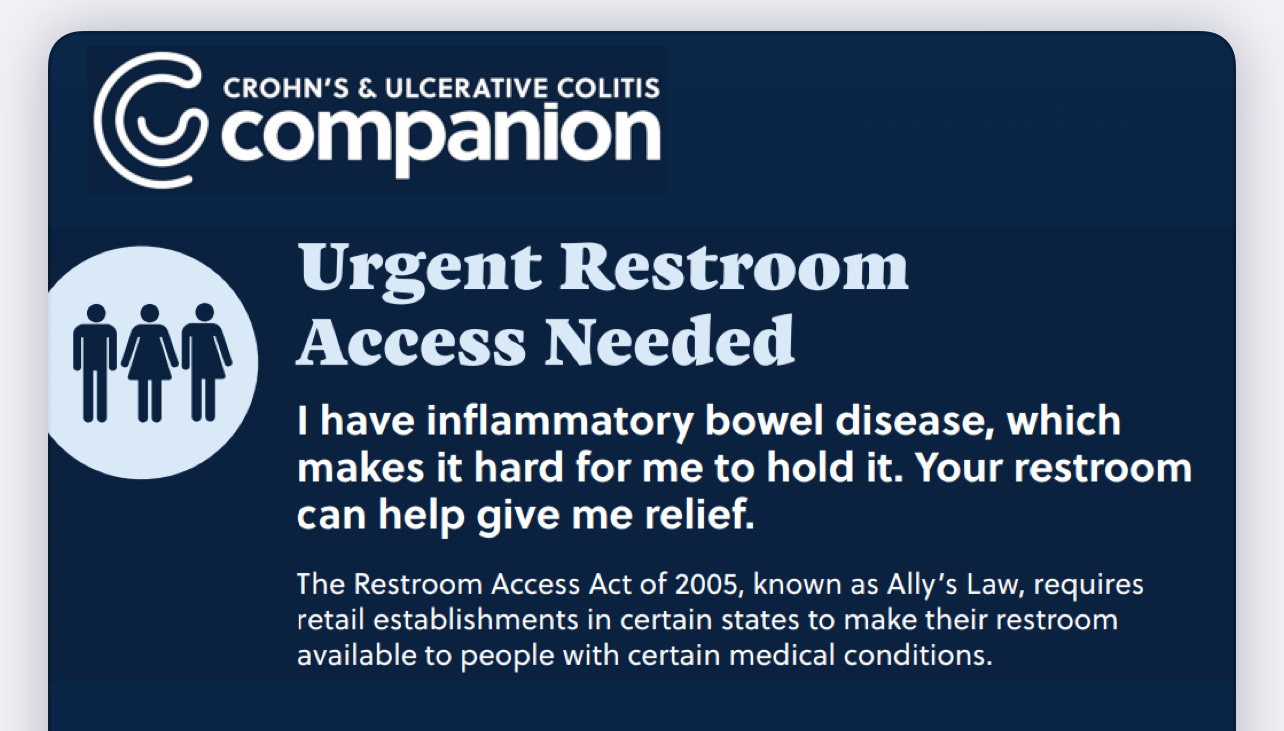On this election day I'm talking about public toilets.

I have Crohn’s disease.
In case you are unfamiliar, it is an autoimmune disease of the gastrointestinal system.
For some it can be very debilitating, effecting their work and their personal lives. It can sometimes require surgery.
You know that TV ad where the couple are happily riding a ferris wheel high above the ground without a toilet in sight. It is for Skyrizi, an expensive drug for those with Crohn’s.
Although Skyrizi sounds more like a third baseman for the Chicago Cubs, it is what I take by self-injection every 60 days.
Taking it means my Crohn’s is under control for the most part except when for when I am in what they call a flare.
Then I have to watch what I eat very carefully and when I need a toilet I need it right away.
When I am in a flare plan my walking and travel routes very carefully keeping in mind where I can use a toilet.
The lack of truly public toilets in New York and other American cities makes it very problematic for those like me with Crohn’s.
New York state, like some other states, has a law requiring businesses that have an employee bathroom to make it available for those with a disability like mine.

It’s called Ally’s Law and it is not widely known about.
I have been turned away from many stores and restaurants.
But the problem of the lack of available toilet facilities doesn't just impact those with a disability.
Signs on stores and restaurants warning that the toilet is available only to customers are pervasive.
A recent New York story reports that MTA bus drivers have been denied the use of a toilet in a market in Brooklyn Heights.
The store — Town Market — sits at the foot of Brooklyn Bridge Park next to the final stop on the B63 bus route. MTA workers sometimes use the shop’s bathrooms during their breaks, according to JP Patafio, head of buses at Transport Workers Union Local 100.
But Patafio said the store banned bus drivers from even entering the store last month after an on-duty operator got into an unspecified altercation with its manager.
“We cannot serve or allow any MTA workers in the store or the cafe,” says a sign taped to the shop’s window.
The shop also has signs stating its restrooms are not open to any member of the public.
So, here’s what I think.
Ally’s Law is not sufficient.
If the city can’t provide public facilities then businesses must. Providing a safe, clean toilet, open to anyone who needs it, should be considered part of the cost of doing business.
It may not be one of the Big Issues in this presidential election, but maybe it should be.
I have a doctor’s appointment in Manhattan this afternoon and it’s a ten minute walk to the F train. As always, I’m planning my route according to where I know I can use a rare toilet if I need to.



